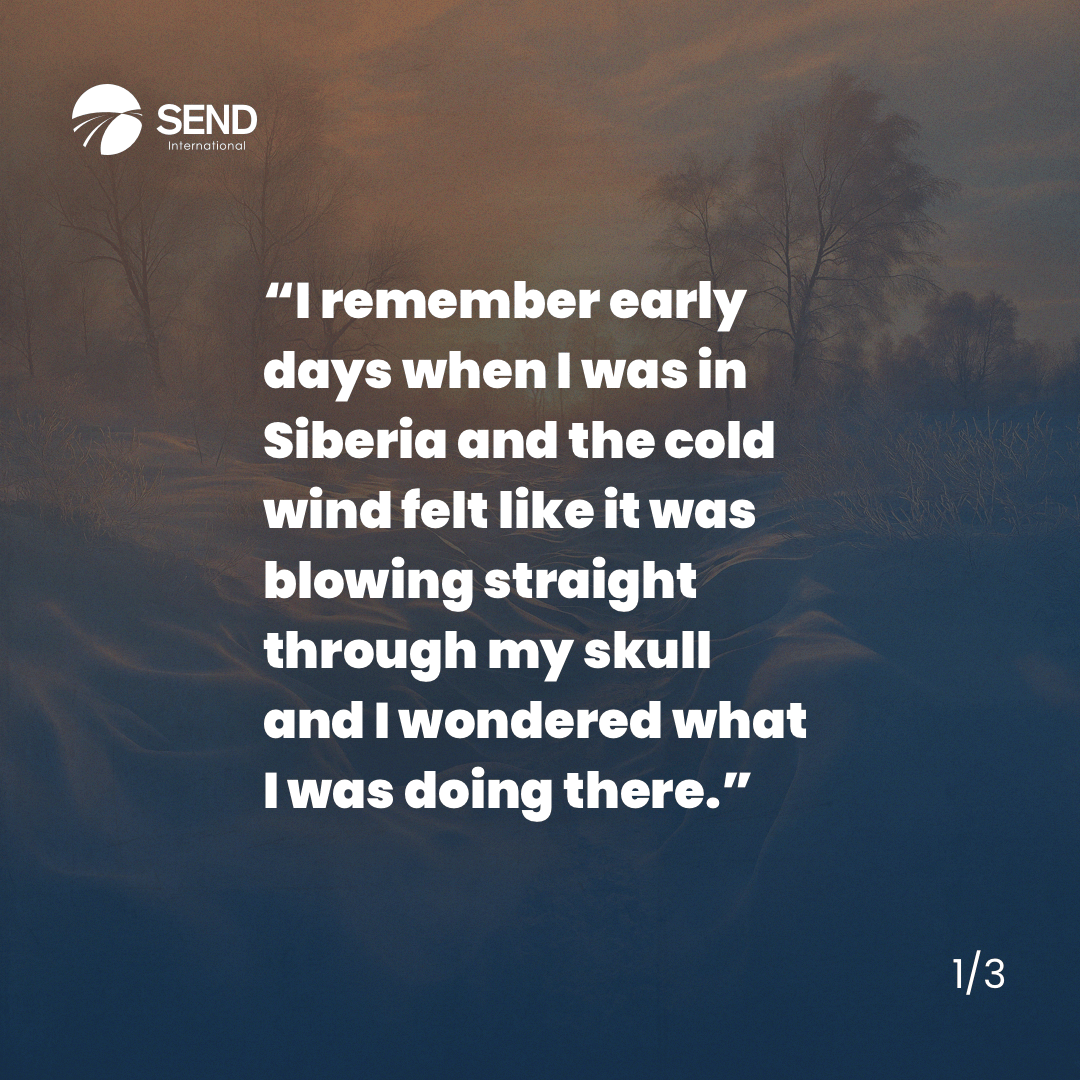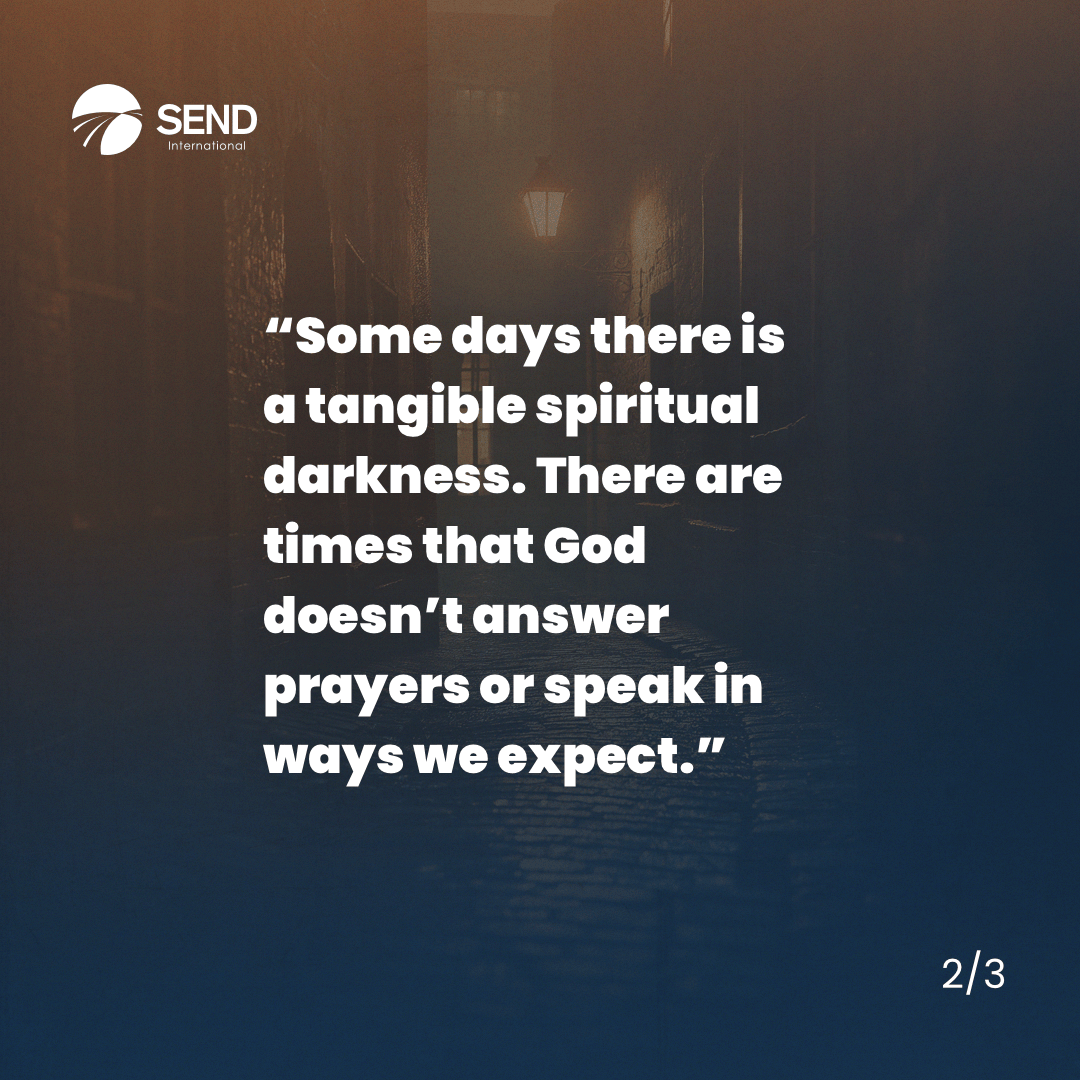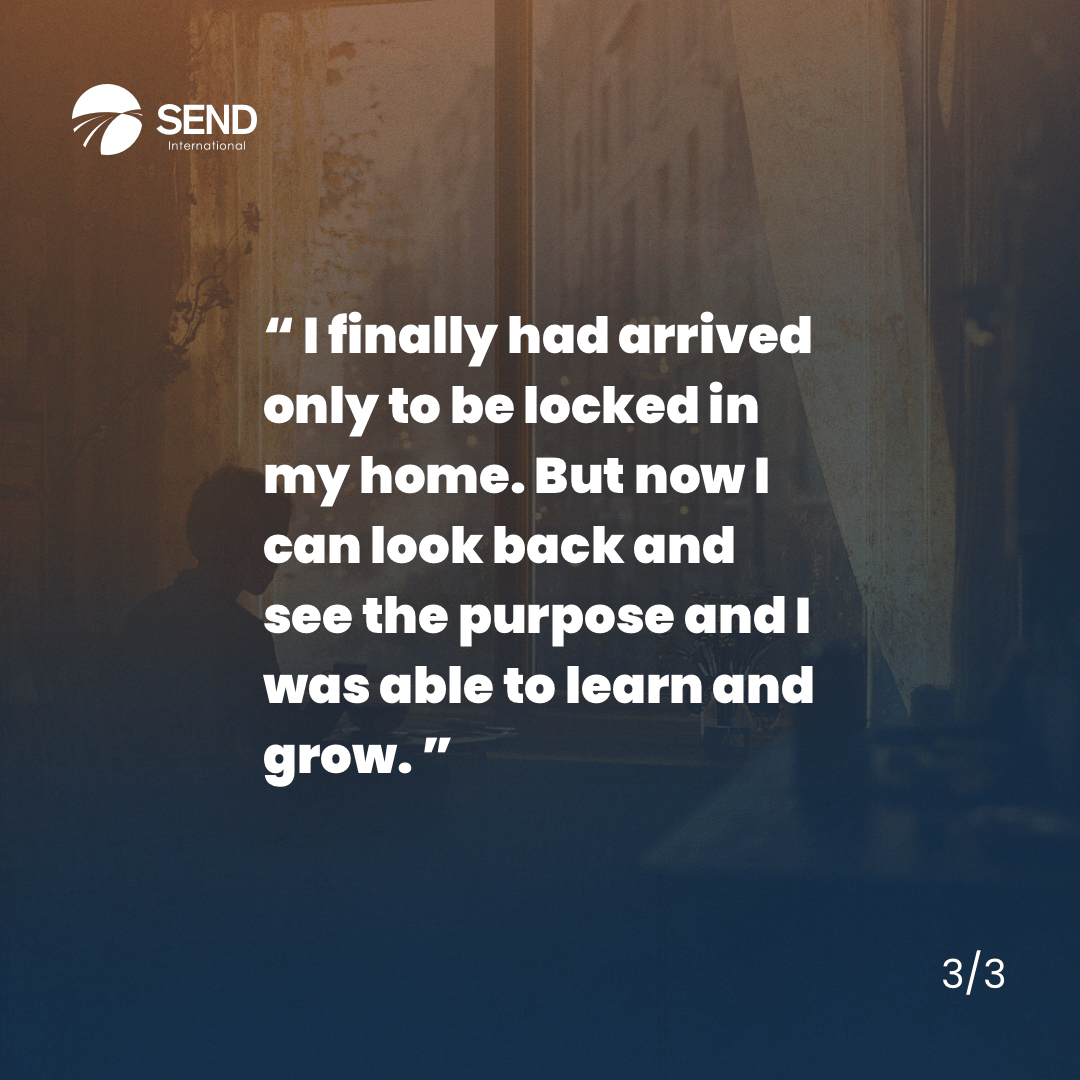
Can you describe a time when you felt stretched
or questioned your calling?
From Siberian winters and language barriers to pandemic isolation and regional conflicts, our missionaries share deeply personal moments of doubt, spiritual stretching, and questioning their calling.
While serving in challenging contexts abroad, each find renewed purpose and deeper trust in God's sovereignty through these difficult seasons. We asked our missionaries: Can you describe a time when you felt stretched or questioned your calling? Here's what they said...

God has stretched me over and over on the field. I remember the early days in Siberia when the cold wind felt like it was blowing straight through my skull and I wondered what I was doing there. Then came the language learning and how it felt (and still sometimes feels), like I will never be able to truly express my heart and what I believe about God and how He is at work in my life and all around us. Language and cultural barriers can leave you feeling limited, even wondering whether you’re truly making a difference.
I also felt very stretched when I took on various leadership roles. At times it felt like I was trying to oversee too many things and I just couldn’t help all the people I was overseeing across the many time zones of our area and region.
Finally, I felt very stretched and a bit lost when we suddenly left Russia at the beginning of the Russia/Ukraine war. Our family left and we didn’t know where to go, what we would be doing or if we would ever see our dear friends and brothers and sisters in Russia again. Eventually, we moved to Central Asia where the Russian language was still helpful, but we were moving from a majority Buddhist region to a majority Muslim region, from a smaller city to a larger city, from a place with almost no other expats to a place where there was a school for expat workers. I felt lost and questioned what I was doing and how I was really helping God’s plans to move forward. In all of these stretching times, God has continued to remind me that He is in control, He loves me, and He is working no matter how weak or lost I feel.



The context I work in is difficult. We experience secondhand trauma by witnessing the crises the people in our community go through on a daily basis. Some days there is a tangible spiritual darkness. There are times that God doesn’t answer prayers or speak in ways we expect.
In all of this, I have not necessarily questioned my calling. But I was extremely stretched. I knew that life in my home culture isn’t easy, but it felt like if I returned, life would be simpler and more straightforward. I was sure that this work is the purpose God has called me to in this season, but I did wonder about what life might look like if I left.

I arrived to the field full time only a few months before the pandemic started. There was a time while I was locked in my apartment that I did start to question what I was doing and really question what God was thinking. I had finally arrived only to be locked in my home. But now I can look back and see the purpose and I was able to learn and grow. I was able to learn to depend fully on God when I can see things clearly and even when it makes no sense to me. I have to trust Him and His ways.

Feeling stretched or unsure about your calling? That’s okay. It’s normal to have questions or feel uncertain as you follow where God leads. Keep praying, keep trusting, He’s still at work in your story.
You don’t have to figure it out alone. We’re here to walk with you. Explore mission opportunities and chat with a SEND missions coach who gets it.
Additional Posts




